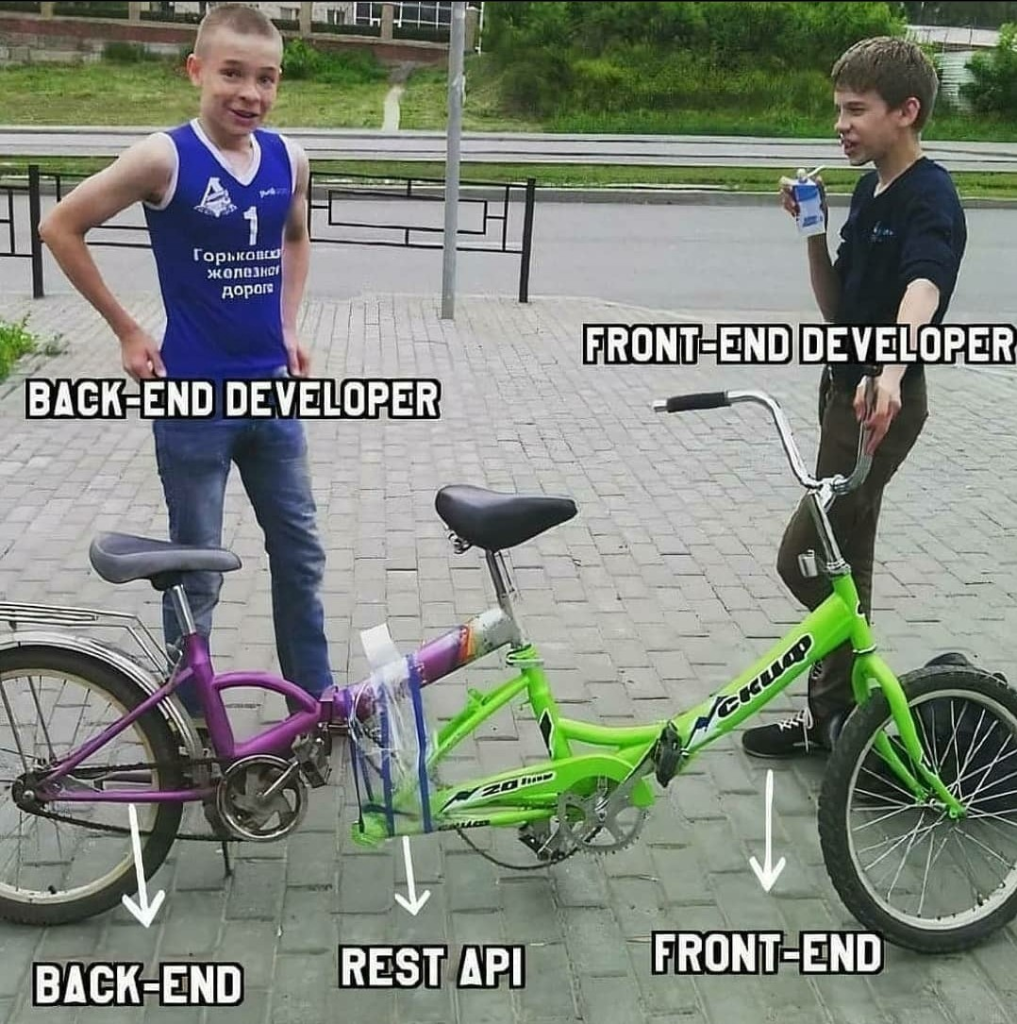Business
The TopRanked.io Weekly Digest: What’s Hot in Affiliate Marketing [Week 20]
With Chrome set to ban third-party cookies and new privacy-centric stuff popping up left, right, and center, big ad tech is in for a world of hurt. But what about affiliates? Turns out, there’s a way to turn ad tech hurt into affiliate profits, and we’re about to tell you how. We’ll also delve into a great affiliate program, and finish off with some simple success secrets to help you make it big.

Quick Disclosure: We’re about to tell you how Content at Scale is the hottest AI content affiliate program right now. And we really mean it. Just know that if you click on a Content at Scale link, we may earn a small commission. Your choice.
If you’ve dabbled in AI content by now, then chances are you fall into one of two camps.

As for those of you in the “does not spark joy” camp, we hear your pain.
We get that whole AI hallucinations thing…

And we also get that AI language models can sound like… well… AI language models…
But what if we told you there was a better way?
A way to get the scale of AI content without the pitfalls of AI content.
Would you want to know more?
Then read on.
Topranked.io Affiliate Program of the Week — Content at Scale
Massively scalable AI content that’s well-researched and doesn’t sound like a robot wrote it. That’s the pitch for our affiliate program of the week — Content at Scale.

Now, as for whether they can deliver on that pitch, we’ll leave that for you to find out (hint: they can… just go Google it). But as we’re here to talk about affiliate marketing stuff, let’s get stuck into the Content at Scale affiliate program.
The Content at Scale Product
First and foremost, Content at Scale is an AI writing tool. But, with AI writing tools being a dime a dozen these days (and plenty of them have affiliate programs), they need to have some special to stand out.
Here’s what we think makes the Content at Scale product worth promoting:
- Well-researched, factual content that reads like a human wrote it (as we said, Google this claim — the Content at Scale reviews are glowing).
- Long-form, SEO-ready content that’s well-structured and includes bells and whistles like key takeaway snippets and a ToC.
- Automatic WP/Shopify upload (Content at Scale has plugins for this).
- Cool features like turning podcasts/YouTube videos and other audio content into full-blown SEO articles.
Oh, and they also have a done-for-you service where they handle all the KW research, editing, and whatnot for you.

But What About the Affiliate Program?
As promised, we’re here to talk about affiliate marketing. So now we know the Content at Scale product’s decent, let’s talk about the Content at Scale affiliate program, starting with commissions:
Content at Scale Affiliate Commissions
- 15% recurring commission on a $500-$2000 per-month product.
- That equates to $75-300 per referral, per month.
To do the maths on this, if you can refer 10 people and all they do is buy the base plan and stick with it for a year, you’ve just earned yourself $9,000. If you managed to sell 10 Content at Scale done-for-you packages, however, that would then become $36,000.
Basically, the earning potential in the Content at Scale program is huge.
Content at Scale Affiliate Bonuses
The Content at Scale product should sell itself to anyone who’s seriously in the market for AI content production. But, just in case you need an extra incentive to push on-the-fencers into paying Content at Scale customers, all affiliates get a nice 20% bonus to offer their audience.
In other words, if anyone joins Content at Scale using your link, they get 20% in bonus credits, while you get a nice commission (15%, in case you missed it).
Win-win all around.
Content at Scale Affiliate Program Bits and Bobs
Content at Scale pays its affiliates through PayPal. If this isn’t a problem for you, then the good news is that the payments are regular and timely.
And finally, Content at Scale runs its affiliate program on the FirstPromoter affiliate platform. This means if you need any of that super-powerful stuff like Webhook integrations, A/B tracking, Sub-IDs, and what not, it’s all there.
Prepare to Scale With Content at Scale
That’s enough for now. If you want to know more, read our full Content at Scale affiliate program review.
Or, to get started earning massive commissions promoting the best AI writing service out there right now (really… Google it), follow this link.

And finally, if you’re interested in Content at Scale services for your own purposes, grab your 20% in free credits right here.
News Takeaways — Privacy Tech Updates a Win for Affiliates?
If you keep an eye on what’s happening in “privacy tech”, then you’re probably aware of Google’s Privacy Sandbox. If you’re not, the long-story-short summary is that it’s a bunch of technologies that provide alternatives to third-party, cross-site tracking (e.g., third-party cookies). This includes things like in-browser interest group tracking, attribution reporting, and other doodads.
As for why this is going to be a potential win for affiliates, we’ll get to that in a moment. But first, to catch you up as to why these alternatives are necessary, that’s because ‘creepy’ ad tech is going the way of the dinosaur. For example, Google Chrome will start blocking third-party cookies starting early next year, and may completely deprecate them by the second half of the year.

As for the timeline on Privacy Sandbox, Google has just announced a full rollout to general availability in Chrome v115, which is set for a mid-July release.
First, Most of This Doesn’t Directly Impact Affiliates…
The first thing to get out of the way is that a lot of this stuff doesn’t really directly impact many affiliate programs. Yes, the affiliate programs you promote are, theoretically, third parties to your website. However, when someone clicks on your affiliate links and gets a tracking cookie gets dropped in their browser, that’s not usually a third-party cookie.
The reason for this is that the cookie usually isn’t set until the user has already navigated to the affiliate program’s website. This is why you usually need your referral code in your “affiliate” links.
As such, from the browser’s perspective, affiliate program cookies are usually first-party cookies. If, on the other hand, the affiliate program had set a cookie while the user was still on your website, that would be a third-party cookie.

…But Still, Some of it Might Be Interesting
Just because this privacy tech stuff doesn’t “directly” impact much for affiliates, that doesn’t mean we should ignore it. In fact, if we’re smart, we can actually use some of it to our advantage.
To illustrate, let’s take the Topics API. This API “enables interest-based advertising (IBA) without having to resort to tracking the sites a user visits,” according to Google.
Now, admittedly, that description is kinda vague and tells us nothing about how it works. It’s also a little dishonest, as it still tracks the websites a user visits. The difference is that it’s Chrome doing the tracking, not ‘creepy’ third parties.
Here’s an outline of how it works:
- Chrome keeps track of a user’s browsing history.
- Chrome uses this browsing history to identify topics that the user is interested in.
- Chrome then makes this list of topics available to websites via a Web API.
As for what’s so interesting about this, start by paying attention to the third point about Chrome allowing websites to read this list of topics.
As it currently stands, if you want to get any sort of information about users on your website, you’re currently quite limited. Yes, you can guesstimate where they are in the world. And yes, you can use Google Analytics to track return visits, origin, and other interesting metrics.
However, if you wanted to know what topics interested that user in real-time so you could serve them relevant content based on this knowledge, then your options are currently pretty limited. Basically, it’s going to involve third-party data brokers and (if you don’t have much to offer in return) a hefty bill.
With the Topics API, however, you can now retrieve that list directly from the user’s browser with nothing more than a simple Web API call.
Now, in case you’re thinking “Web API call” still sounds complicated and expensive, here’s the good news — it’s not. The level of sophistication here is about the same as getting an alert box to pop up in the user’s browser.
Of course, how you then use that list of topics once you have it is a whole other story that, depending on how fancy you want to get, could involve a whole mess taping bits together.

But, for now, the main takeaway here is that getting that list of topics itself is dead simple.
And free.
And, also, if early testing by Xandr is anything to go by, just as accurate as current third-party solutions.
Here’s How Affiliates Could Use Topics API
So with the Topics API basically democratizing “personalized” advertising, how’s an affiliate actually meant to use it?
Well, let’s start with the obvious — serving targeted creative assets.
To illustrate, let’s say you’re running a campaign for pet insurance. And just to make things interesting, let’s also imagine two more things:
- You have different creative assets available for the campaign. Each of them features different animals.
- You’re getting a bunch of traffic for your article titled “The Best Pet Insurance for Pre-existing Conditions”.
But now you have a dilemma. What animal should feature in the creatives? The demographics of different pet owners are completely different, after all.

Well, with the Topics API, that’s easy. You get your web dev to set up a call to fetch the user’s topic list straight from their browser. And, if a particular pet shows up in that list, you then load the relevant creatives.
You could also go much deeper than this, and start loading entirely personalized content. However, as this would first require loading your website before the content (you can’t access the user’s topics list until they’re actually on your website), this would basically make your website SPA-ish. This isn’t great for SEO. And you’ll also run the risk of Google flagging you for “cloaking,” so maybe it’s best to steer clear of this if SEO is your main source of traffic.
If, on the other hand, you’re sourcing most of your traffic from social/paid/etc., then there’s no reason not to go crazy with this stuff. The more you can laser-target your copy/creatives/etc. to resonate with the user, the harder your campaigns will convert.

Takeaway
While a lot of this “privacy innovation” isn’t ideal for the ad industry, the opposite could be true for many affiliates. As we’ve seen, something like the Topics API basically democratizes the sort of ad tech that only the big boys have access to right now. And you can bet there are more creative uses for privacy tech if you put your thinking cap on.
Of course, the only tricky part is going to be creating all that personalized content. Sure, this is easy if the affiliate program is providing a variety of creatives. But, if you now need “Best Pet Insurance for Pre-existing Conditions” articles tailored for cats, dogs, fish & aquaria, reptiles & amphibians, etc…. then you’re gonna need a scaleable solution.
Sounds like a great fit for Content at Scale.

Closing Thought
Last week, we covered the Mark Manson guide to becoming more successful than 99% of people. As a recap, the basic gist was that you don’t need good habits to have success. Instead, all you really need to do is:
- Have a contrarian idea.
- Be correct about that idea.
- Execute on it massively.
Now, first things first. A quick side note on that third point — execute massively. If content production is part of this, then hey… don’t forget about Content at Scale.

Anyway… back on topic…
To illustrate his point, Manson gave a bunch of examples of ultra-successful people who all had really bad habits. You know, the kinda stuff that’s the polar opposite of the advice usually doled out in your typical “how to be more successful than 99% of people” clickbait.
But here’s the thing. Depending on what you want out of life, being successful doesn’t have to mean doing what 99% of people aren’t doing.
Also, counterintuitive ideas are sometimes counterintuitive for a good reason. At best, they’re extremely risky. And, at worst, they’ll never work.

So what happens if we lower the bar for success to, let’s say, becoming a millionaire? That will still slot you into the upper echelons (if you’re in the US, you’ll be better off than 90% of people). But, as we all know, there’s a bunch of clean-living millionaires doing some awfully generic things.
As a case in point — have you ever met a lawyer? Even if you’ve never needed one, you probably have. I mean, there are quite literally millions of them (actually, 1.3 million in the US… so not quite millions with a plural).
Still, the point is, these are all people doing something that “most people” are doing. And yet, many of them have a good chance of joining that select “better than 90%” group.
So what’s the secret that separates successful lawyers from the merely good lawyers?
Well, in many cases, the first part of the success formula lies in the “it’s not what you know, but who you know” line. If you don’t know the partners at Big Shot, Honcho & Mogul Legal, you’re never gonna ‘make partner’ at Big Shot, Honcho & Mogul Legal.

But, of course, simply knowing the right people will only get a lawyer so far. In all but the rarest of cases, no lawyer’s going to ‘make partner’ at Big Shot, Honcho & Mogul Legal if they can’t win cases or bring in clients. And no amount of being liked by the right people will make up for this.
So let’s simplify again and just say that hard work and a modicum of innate talent are the second and third prerequisites for a “better than 90%” lawyer.
With that, we finally arrive at where we’re going — a three-step, play-it-like-a-lawyer recipe for success that doesn’t require you to devolve into a risk-taking eccentric as Manson was advocating for.
Here it is:
- Network with people that count.
- Use your innate talents.
- Work hard and bring results.
If you apply this to whatever you’re doing, then you’ve just set yourself up to be more successful than most people**, even if they’re doing the same thing as you. And the best part is, once again, it still doesn’t require any of that monk-mode-no-fap-early-morning-cold-shower hokey pokey that some would have you believe is the key to success.
(**Terms and conditions apply… this is the play-it-like-a-lawyer recipe, after all.)
__
(Featured image by SevenStorm JUHASZIMRUS via Pexels)
DISCLAIMER: This article was written by a third party contributor and does not reflect the opinion of Born2Invest, its management, staff or its associates. Please review our disclaimer for more information.
This article may include forward-looking statements. These forward-looking statements generally are identified by the words “believe,” “project,” “estimate,” “become,” “plan,” “will,” and similar expressions, including with regards to potential earnings in the Empire Flippers affiliate program. These forward-looking statements involve known and unknown risks as well as uncertainties, including those discussed in the following cautionary statements and elsewhere in this article and on this site. Although the Company may believe that its expectations are based on reasonable assumptions, the actual results that the Company may achieve may differ materially from any forward-looking statements, which reflect the opinions of the management of the Company only as of the date hereof. Additionally, please make sure to read these important disclosures.

-

 Crowdfunding2 weeks ago
Crowdfunding2 weeks agoReal Estate Crowdfunding in Mexico: High Returns, Heavy Regulation, and Tax Inequality
-

 Markets1 day ago
Markets1 day agoMiddle East Escalation Sparks Market Uncertainty as Oil and Gold Poised to Rise
-

 Cannabis2 weeks ago
Cannabis2 weeks agoSouth Africa Proposes Liberal Cannabis Regulations with Expungement for Past Convictions
-

 Crypto6 days ago
Crypto6 days agoCrypto Markets Under Pressure as Vitalik Buterin Sells 17,000 ETH















